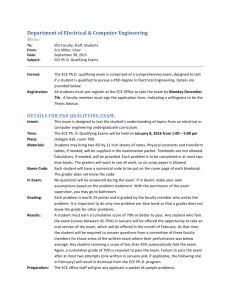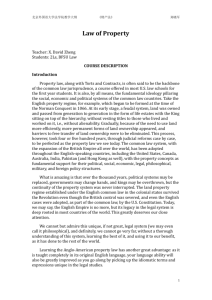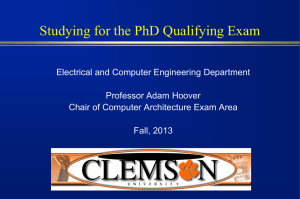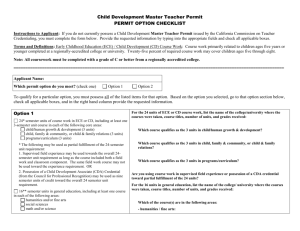CAS Qualifying Exam Guide
advertisement
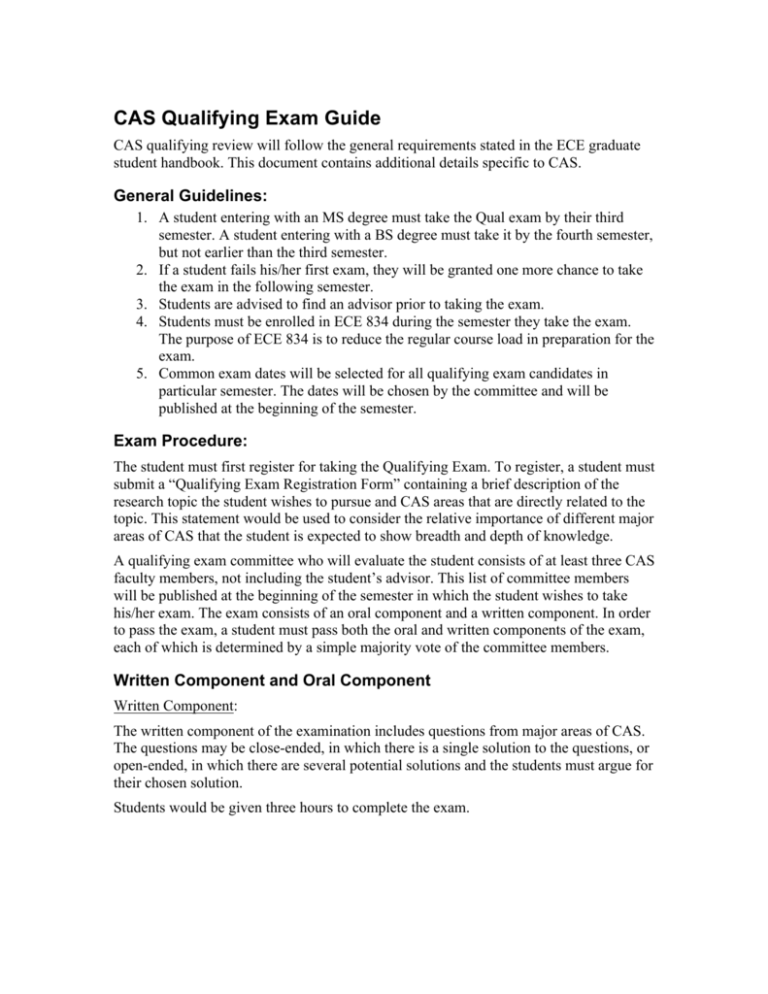
CAS Qualifying Exam Guide CAS qualifying review will follow the general requirements stated in the ECE graduate student handbook. This document contains additional details specific to CAS. General Guidelines: 1. A student entering with an MS degree must take the Qual exam by their third semester. A student entering with a BS degree must take it by the fourth semester, but not earlier than the third semester. 2. If a student fails his/her first exam, they will be granted one more chance to take the exam in the following semester. 3. Students are advised to find an advisor prior to taking the exam. 4. Students must be enrolled in ECE 834 during the semester they take the exam. The purpose of ECE 834 is to reduce the regular course load in preparation for the exam. 5. Common exam dates will be selected for all qualifying exam candidates in particular semester. The dates will be chosen by the committee and will be published at the beginning of the semester. Exam Procedure: The student must first register for taking the Qualifying Exam. To register, a student must submit a “Qualifying Exam Registration Form” containing a brief description of the research topic the student wishes to pursue and CAS areas that are directly related to the topic. This statement would be used to consider the relative importance of different major areas of CAS that the student is expected to show breadth and depth of knowledge. A qualifying exam committee who will evaluate the student consists of at least three CAS faculty members, not including the student’s advisor. This list of committee members will be published at the beginning of the semester in which the student wishes to take his/her exam. The exam consists of an oral component and a written component. In order to pass the exam, a student must pass both the oral and written components of the exam, each of which is determined by a simple majority vote of the committee members. Written Component and Oral Component Written Component: The written component of the examination includes questions from major areas of CAS. The questions may be close-ended, in which there is a single solution to the questions, or open-ended, in which there are several potential solutions and the students must argue for their chosen solution. Students would be given three hours to complete the exam. Oral Component: For the oral component, the student is expected to prepare a technical presentation on a research topic (or topics) related to Computer Architecture and Systems. The committee will ask questions related to the fundamental concepts covered in the presentation to test the student’s breadth and depth of mastery of the concepts. The student’s ability to give satisfactory answers to those questions would determine the outcome of the oral component of the exam. In weighting the outcome of the exam, the Committee would take into account the relative importance of different areas to the student’s planned research area stated in his/her qualifying exam registration form, i.e. larger weighting would be used for areas directly related to the student’s planned research. The oral exam is limited to 60 minutes, of which the student must prepare 30-minute presentation and leave the remaining 30 minutes for questions and answers. Recommended Courses The student is recommended to have taken or is taking the following courses (in no particular order): 1. ECE 463/521 2. ECE 506 3. ECE 561 4. ECE 566 5. CSC 501 Recommended Reading The student is recommended to master concepts covered in the following reading materials. Additional reading material suggestions may be listed on the CAS Qual web site. Parallel Architecture: Fundamentals of Parallel Computer Architecture, textbook by Yan Solihin, Chapters 1-4 and 6-12. Parallel Computer Architecture, textbook by Culler and Singh, 2nd Edition, Chapters 1-3, 5, 6.1-6.4, 8, 9.1, 10. Microarchitecture: Computer Architecture: A Quantitative Approach, textbook by Hennessy and Patterson, 4th Edition, Chapters 1, 2, 3, 5, Appendix A-C revised 9/30/2009. Embedded Systems: Real Time Embedded Systems and Components, textbook by Sam Siewert, 1st Edition, 2007, Chapters 1, 2, 3, 4, 8, 10. Compilers: Engineering a Compiler, textbook by Keith Cooper and Linda Torczon, Chapters 1-3.3, 5, 8-13. Operating Systems: Operating Systems Concepts, textbook by Silberschatz, Galvin and Gagne. or Operating Systems: Internals and Design Principles, textbook by Stallings.


